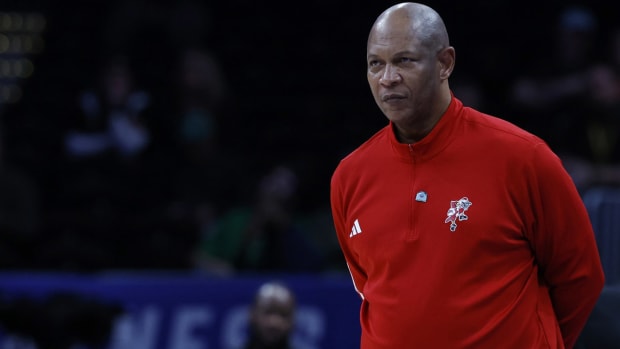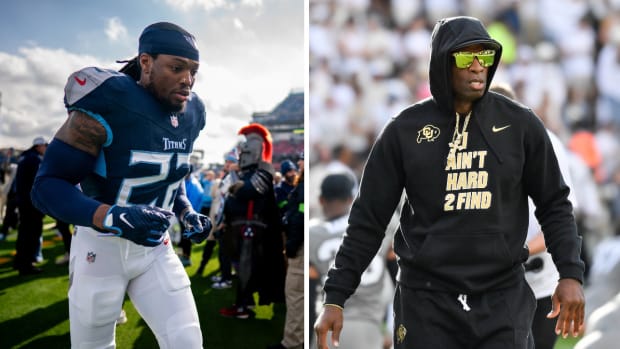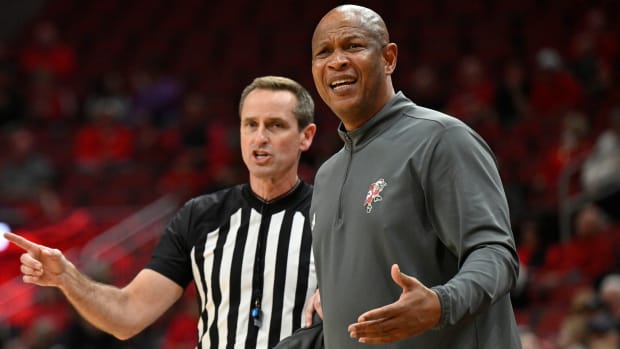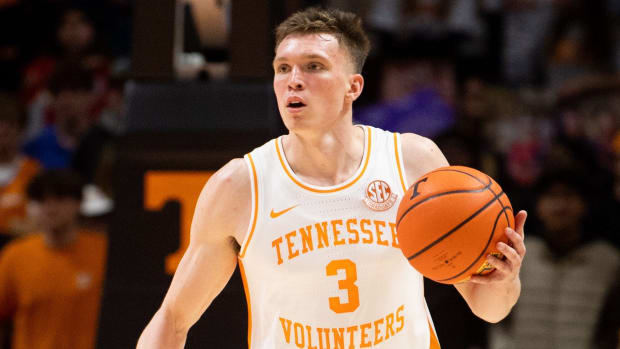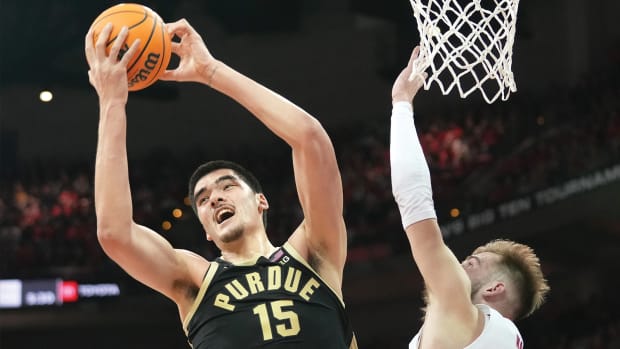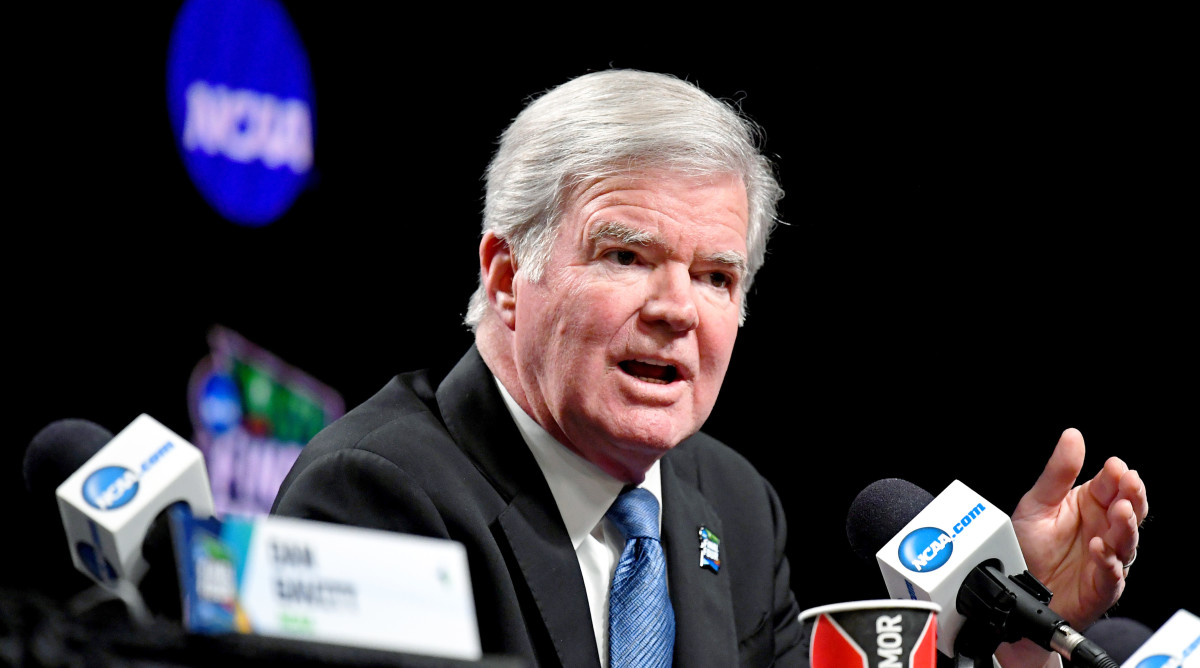
Congress Asks NCAA to Provide Info Regarding Gender Disparities
WASHINGTON — The chairwoman of a congressional committee and two other lawmakers are seeking documents over troubling reports regarding gender inequality within NCAA sporting events.
Three Democratic women U.S. House members penned a four-page letter to NCAA president Mark Emmert Tuesday, expressing their concerns over the disparate treatment of men’s and women’s championship events, and requesting documents connected to those championships. Sports Illustrated obtained a copy of the letter, which can be read in full here.
Representatives Carolyn B. Maloney (D., N.Y.), Jackie Speier (D., Calif.) and Mikie Sherrill (D., N.J.) wrote to Emmert as members of the House Oversight and Reform Committee, which they note is the principal oversight committee of the House of Representatives that “holds broad authority to investigate any matter at any time.”
The House members set a July 21 deadline for Emmert to send to them requested documents about NCAA championship events including tournament site details, complaints filed by participating teams, budget documents for men’s and women’s events and any reviews of gender disparities at such events. The NCAA holds 90 championships each year.
Lately, the governing body of college sports has been subject to intense criticism for differences in how it operates and budgets for women’s events compared to men’s events—a shift that corresponds with the sweeping Me Too movement against sexual abuse and harassment.
A troubling issue jump-started the latest wave of scrutiny toward the NCAA. In March, a discrepancy between the weight rooms at the men’s and women’s basketball tournaments, held at two different sites, made national news and had the governing body quickly enhancing the women’s weight room, at first nothing more than a single rack of dumbbells, a striking disparity to the sprawling and lavish men’s facility.
In response, the NCAA conducted an internal review and hired a law firm to evaluate and produce an assessment of the organization’s policies and practices related to gender equity. In the letter sent Tuesday, lawmakers request details of the evaluation.
The NCAA governance structure is often misunderstood. High-ranking university and conference administrators create and adopt rules that are so often the subject of criticism. However, the NCAA, Emmert and his staff are responsible for two primary functions: 1) enforce the rules and 2) operate championship events—both of which have come under harsh scrutiny lately.
Many of the enforcement cases tied to the sweeping 2017 Department of Justice investigation of corruption in college basketball have languished, allowing high-profile programs such as Kansas, Louisville, Arizona, Auburn, LSU and North Carolina State to compete without sanctions for years. That has deepened the cynicism within the membership, which has long been critical of the NCAA’s labyrinthine crime-and-punishment process.
Some of the delay in resolution of these high-profile scandals was due to the criminal probe itself and some due to the pandemic, but the NCAA contributed to its own bureaucratic malaise by creating an alternative infractions arm that has failed to process a single case. That’s the Independent Accountability Review Process, which is over budget and behind schedule, and which Emmert himself said in April “is taking too bloody long.”
The basketball tournament weight room issue triggered a wave of public decries from women athletes and coaches at other championship sites, including problems with the locker rooms at the women’s College World Series and the playing surface at the women’s volleyball tournament.
In figures released by the NCAA this spring, the organization acknowledged it spends twice as much on the men’s basketball tournament as it does the women’s. However, the men’s event routinely makes more than $800 million per year. The women’s event, in 2018–19, lost $2.8 million, the largest loss of any NCAA championship that year.
The financial disparity is a microcosm of what plays out on college campuses across the country. Men’s sports such as football and basketball often support Olympic and women’s sports that, for the most part, lose money.
“These troubling reports suggest that the full extent of the unequal treatment caused by NCAA’s policies and practices still may not be known,” the letter says. “We are also concerned that NCAA’s unequal treatment of women’s sports may impact opportunities to strengthen and grow those sports. Experts contend that media contracts undervalue women’s athletics, and NCAA’s current promotional strategies restrict their market expansion.”
Additional reporting by Pat Forde.
MORE NCAA COVERAGE:
• The New Era of College Sports Is Here. Is Anyone Ready?
• NCAA's New NIL Landscape Already Proving to Quell the Naysayers
• How Come the NCAA Hasn't Taken Action Against Anti-Trans Sports Laws?

